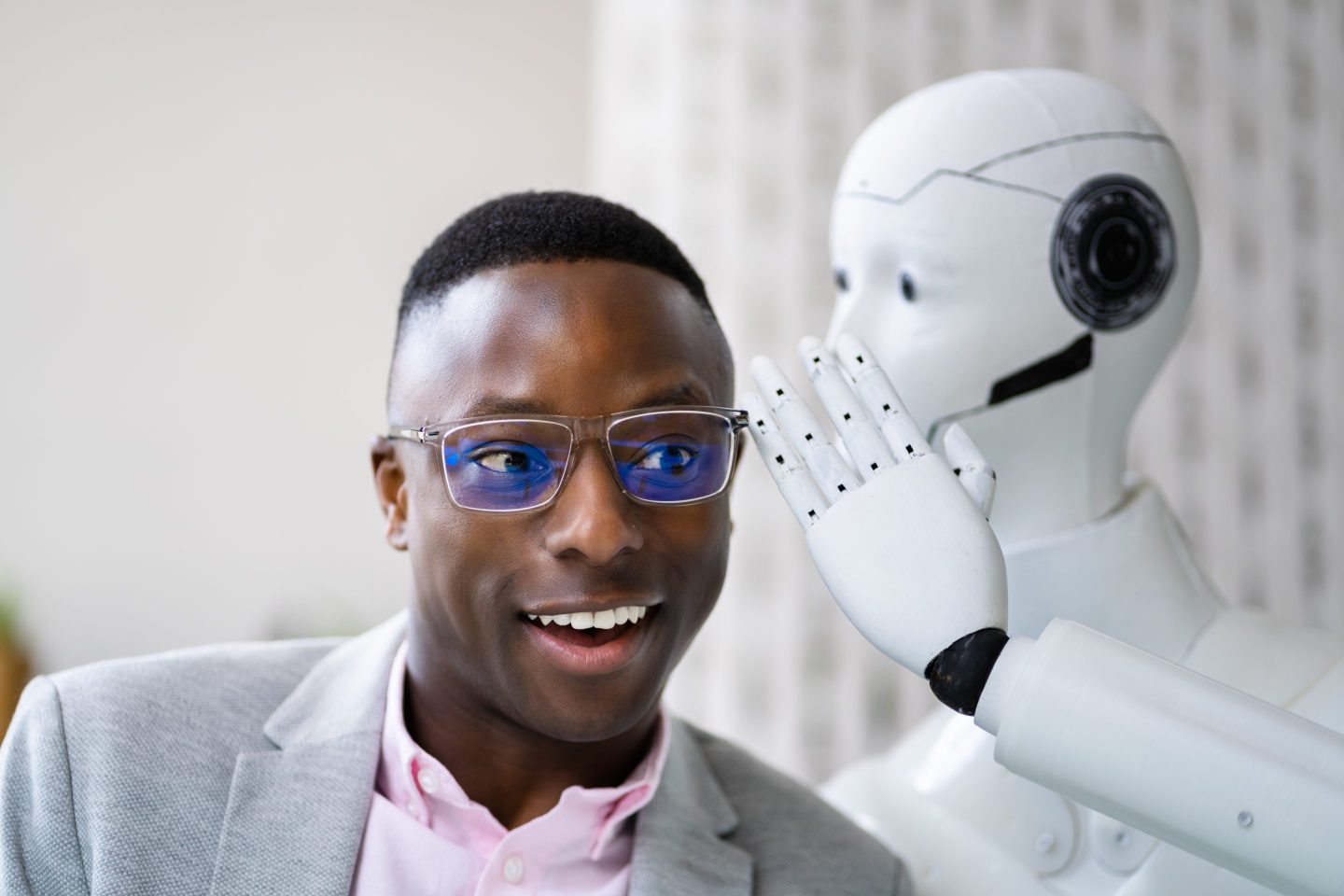Good morning.
2025 is likely to be the year when many of us will start using autonomous AI agents that act independently, consuming information and performing tasks on our behalf. What makes these agents effective is us: our unique data, prompts, and personalities that create a “digital self” that advises and acts on behalf of you, its human counterpart. AI agents’ power will come from what we allow them to know about us—from personal medical data to job training.
Don Tapscott calls this “identic AI.” Tapscott is an author who studies the impact of technology on business and society. He coined the term “digital copilot” and is working on a new book called The Digital Self. He joined our CEO Initiative roundtable earlier this week to talk about the implications for leaders.
“In companies, we view AI as a tool, a kind of a super capability that can enhance all operation applications,” said Tapscott. “Intelligent systems are no longer going to be just tools. They’re going to be active participants in our world … But where our digital identities become smart is [that] identic AI will know us and help us in every part of our life.”
But that creates legal issues for companies. If my AI agent is essentially a digital mini-me, who owns that information? Typically, a company will own all the content you produce during the course of your employment. But what if you leave and the “digital you” continues to generate ideas or content after you’re gone? You could become your own fiercest competitor.
And how do we manage a workforce in which people rely on personalized intelligent agents, much like the children in Philip Pullman’s His Dark Materials trilogy have daemons as an extension of themselves? To start, Tapscott argued, “we need to own them as individuals,” meaning they should be portable, much like a 401(k).
Employers—and their intellectual property lawyers—may well disagree.
More news below.
Diane Brady
diane.brady@fortune.com
Linkedin
TOP NEWS
Benioff warns against “excessive” AI investment
Salesforce CEO Marc Benioff warned that tech companies investing billions into AI are in a “race to the bottom” that will hurt their margins in a recent interview with journalist Kara Swisher. Instead, Benioff said he plans on using the tech developed by Amazon, Google, and others instead of creating it internally.
ServiceTitan debuts to success
ServiceTitan, a software company for contractors, debuted on the Nasdaq yesterday morning and saw shares jump from an initial price of $71 to $100.90 at close. Founders Ara Mahdessian and Vahe Kuzoyan told Fortune that “strength,” “durability,” and “favorable market conditions” set the stage for what is one of the few tech IPOs of the year.
A PE pioneer remembered
TPG founder David Bonderman passed away on Wednesday, yielding praise around the industry for one of the earliest pioneers of private equity. The firm currently manages $239 billion in assets. Competitors including KKR co-executive chairman Henry Kravis and Goldman Sachs CEO David Solomon praised Bonderman’s investing history following the announcement of his death.
AROUND THE WATERCOOLER
Amazon’s AGI boss: You don’t need a PhD in machine learning to build with AI anymore by Jenn Brice
UnitedHealthcare CEO’s death is being mocked on LinkedIn—a move that could hurt careers, says HR expert by Sheryl Estrada
Big Tech wants AI data centers now. The reality: Clean energy infrastructure can take a half-decade or more to build by Sharon Goldman
The Walton family is the world’s richest as soaring Walmart shares drive the heirs’ net worth to $432 billion by Chloe Berger
Vancouver just voted to become a Bitcoin-friendly city but Microsoft’s shareholders want no part of it by Catherine McGrath
Apple went public 44 years ago—what your $10,000 investment would be worth today by Greg McKenna
This edition of CEO Daily was curated by Joey Abrams.













